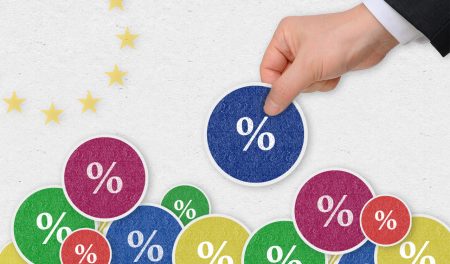Over the last two years, after the great trial of the pandemic, Greece was gradually showing signs of recovery and of the restructuring of its forces.
The Greek economy, despite the post-pandemic difficulties and the additional problems piled up by Russia’s war against Ukraine, appeared to retain its dynamism and a strong desire for a restructuring and change of its productive model.
The previous, unfortunate experience of the economic crisis, which lasted for over a decade, the entire painful process of the internal devaluation, and the rational re-evaluation of the cost and of the reform of everything, transformed the conscience and outlook of the majority.
For the first time after many decades, that allowed the re-ordering and the flowering of the private sector of the economy.
In Greece right now, one sees an environment of truly feverish, renewed creativity and economic reconstruction.
There is no sector of economic activity that is inert, that does not exploit opportunities for extroversion, and that is not coordinated with the shifts in production and commerce mandated by geopolitical conditions and the reordering of interests and forces.
All the evidence and data confirm that.
Greek exports in 2010 were just over 21bn euros, or 9.5 percent of GDP.
Last year, they exceeded 40bn euros, nearly 22 percent of GDP, and in the first two quarters of 2022, exports amounted to 26bn euros, which permits one to project that they will exceed 50bn euros at the end of the year.
In terms of GDP, Greece has surpassed Italy, Spain, and France, and is a hair’s breadth from Portugal, which is considered a model of economic reconstruction.
It is not only exports that confirm the ongoing economic rebirth and reconstruction in our country.
There is a wave of investment in all economic sectors and there is a growing international interest in Greek stocks and enterprises.
Suddenly, the Greek economy became internationalised and literally changed course.
Very powerful international investment funds are now coming to Greece, spending billions of euros to acquire and manage Greek companies in the critical sectors of energy. healthcare, food, real estate, and tourism.
Even shipbuilding activities that for years were problematical are finding opportunities for a re-ordering and rebirth.
The impact of this wave of reconstruction is reflected in high growth rates, both in 2021 and this year, and there has been a rapid decline in the unemployment level, which fell to 11.6 percent in July.
Moreover, Greece appears to be fiscally secure. Budget deficits are under control, and although debt remains high, it is being adequately managed and does not constitute a problem.
That was confirmed in recent days by Moody’s auditors who came to Athens to evaluate Greek economic conditions in general and to decide whether they will permit Greece’s return to an investment grade credit rating.
In this phase of a cyclical rise and at a transitional point for the reintegration of the Greek economy in the international economic system on equal terms, suddenly the surveillance scandal dropped like a bombshell and created an environment of political crisis.
The spectre of political danger has cast a long shadow.
It would be a historical error if this dark activity of disreputable and opaque people derails the country from its course.
It will be even worse if the forces of inertia that oppose reforms become predominant once again by exploiting this error of history.





